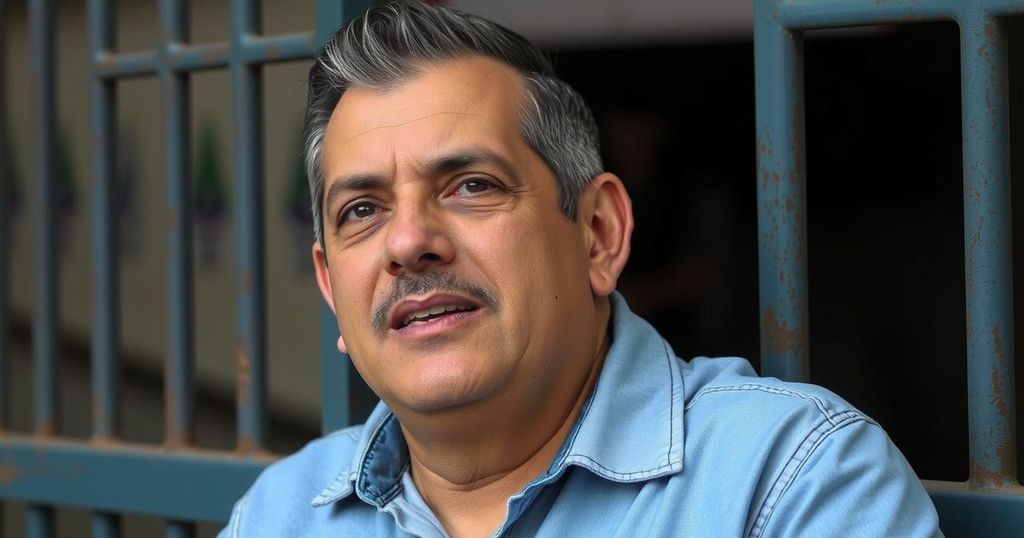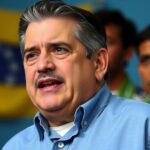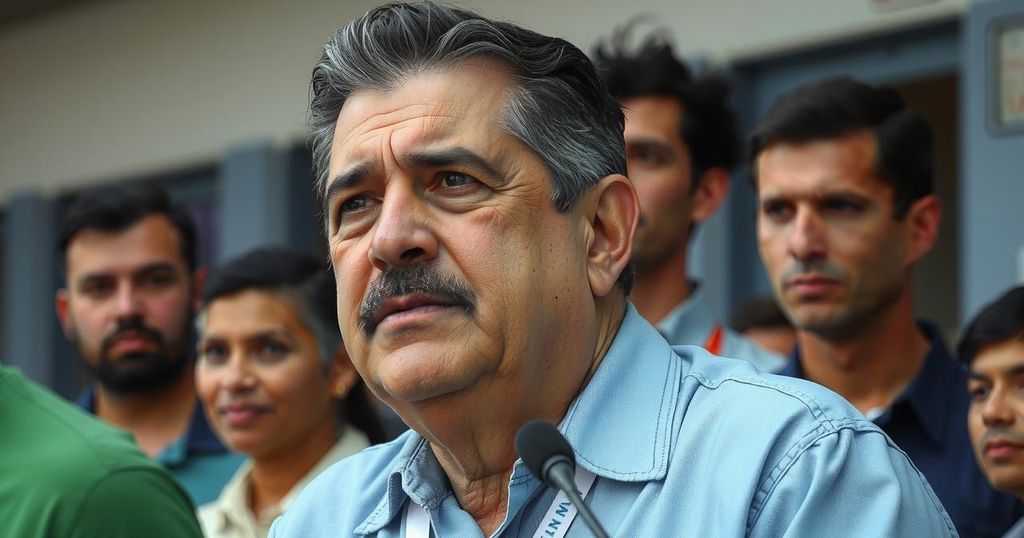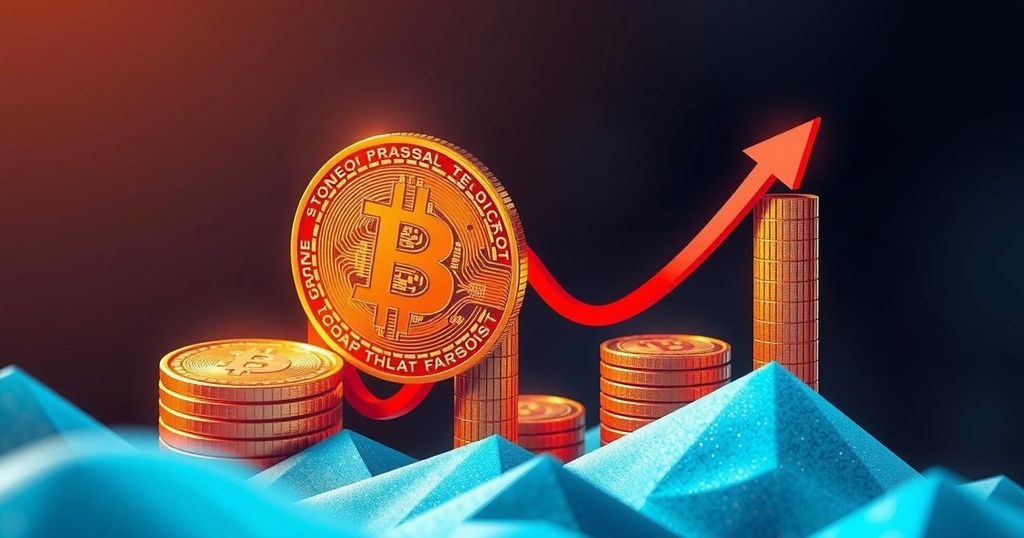Venezuelan Activist Juan Describes Brutality and Hope Amid Political Repression
Juan, a young Venezuelan activist, shared his experience of torture and poor conditions in Tocorón prison after being detained during protests against President Maduro’s disputed election victory. He recounts mistreatment, physical abuse, and inadequate food while incarcerated. Despite these hardships, Juan hopes for political change through opposition leader Edmundo González’s return in 2025, emphasizing the resilience of those fighting for democracy amid government repression.
Juan, a young Venezuelan political activist, has bravely shared his harrowing experiences of brutality endured while imprisoned after protests following the disputed presidential elections on July 28, 2023. He recounts being detained, tortured, and held in deplorable conditions in the notorious Tocorón prison. Juan reports that he and other detainees were subjected to physical and psychological abuse, with food that was often inedible and little regard for basic human rights. His account has gained attention as it reflects the widespread repression faced by those opposing President Nicolás Maduro’s regime. Despite his traumatic experiences, Juan remains hopeful for a political change and insists that he will not silence his voice due to fear of persecution.
After his release in mid-November, Juan revealed details regarding the conditions in Tocorón, where inmates experienced a lack of basic care and vivid examples of mistreatment, such as being beaten and forced to endure torturous methods of confinement. Reports from organizations such as Foro Penal corroborate his claims, emphasizing that detainees are often political prisoners, unjustly accused simply for expressing dissent. In the wake of the elections, many Venezuelans took to the streets, contesting Maduro’s victory, which they believe was fraudulent due to the opaque actions of the electoral authorities who are loyal to the government.
Juan’s testimony sheds light on the broader context of human rights violations in Venezuela, particularly the systematic persecution of opposition figures. He, along with many others who are still imprisoned, holds a tenuous hope for a transition in the government, centered around the possible return of opposition leader Edmundo González on January 10, 2025, following accusations of election fraud against Maduro. While the international community, including the United States, has recognized Gonzalez as the legitimate victor, the Venezuelan government continues to deny these claims, labeling them as conspiratorial efforts to undermine its authority. In spite of these challenges, Juan expresses a resolve to return to activism, empowering fellow detainees who remain imprisoned and suffering under oppressive conditions.
In conclusion, Juan’s story exemplifies the human cost of political repression in Venezuela, underlining the urgent need for international attention to human rights abuses. His determination to advocate for change and support for Edmundo González illuminates the resilience of those fighting for a democratic Venezuela, even in the face of grave risks. Juan’s account not only serves as a personal narrative of suffering but also as a rallying cry for continued political resistance against an increasingly authoritarian regime.
Venezuela has faced significant political turmoil, particularly surrounding the controversial elections of July 2023, in which President Nicolás Maduro’s regime declared victory amid widespread allegations of fraud. The National Electoral Council, which is perceived as biased towards the incumbent government, has been criticized for its lack of transparency regarding voting results. This situation has sparked mass protests across the country, leading to the arrest and persecution of numerous opposition activists. Human rights organizations report systemic violations, including torture, unlawful detentions, and inadequate living conditions in prisons, particularly in notorious facilities like Tocorón. A prominent figure in the opposition, Edmundo González, has been positioned as a legitimate contender for the presidency, signaling potential political upheaval in the near future as he plans to return to Venezuela in early 2025.
Juan’s testimony underscores the brutality of the Venezuelan prison system and the psychological toll experienced by political prisoners in the context of ongoing repression under Maduro’s administration. The situation reflects not only personal suffering but also highlights the need for international scrutiny of human rights violations. With continued resistance from activists and the hope for a political transition, the future of Venezuela remains uncertain as it grapples with deep-rooted corruption and repression. Juan’s courage in speaking out exemplifies the unreliable atmosphere for dissenters and the urgent necessity for a call to justice and change within the nation.
Original Source: www.bbc.com








Post Comment